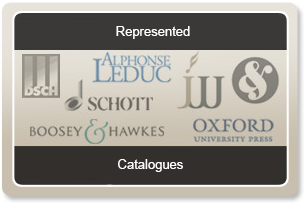News
‘Cracovians and Highlanders’ – unfamiliar aspects of the opera
2017-10-25
On 11 November, Wrocław Opera invites you to the premiere of 'Cud mniemany, czyli Krakowiacy i Górale' [The supposed miracle, or Cracovians and highlanders], with music by Jan Stefani and words by Wojciech Bogusławski. This is a special event: although this oldest Polish national opera has returned to the stage many times, the Wrocław production will be the first to be based on a critical source edition of the music.
Here are a few facts describing the fortunes of this work:
The music contained in the composer’s manuscript is probably not what was played when the work was originally staged (on 1 March 1794), but today it is the only reliable version reflecting the composer’s intentions. Although the music has been accessible to musicologists and musicians at the library of the Stanisław Moniuszko Music Society of Warsaw, an edition faithful to the source has never yet been published.
The opera was first reworked during the first half of the nineteenth century, when ‘The Miracle’ began to be fused with Karol Kurpiński and Jan Nepomucen Kamiński’s ‘Zabobon czyli Krakowiacy i Górale’ [Superstition, or Cracovians and highlanders]. Shortly after the Second World War, the opera was staged in an adaptation by Leon Schiller, for which the score was prepared by Władysław Raczkowski. In that version, published in 1955 by PWM Edition, which became established in Polish opera houses, the original two acts were expanded to four, and the musical material was increased from twenty-six to thirty-eight numbers. Some pieces were taken from works by Karol Kurpiński (the above-mentioned Superstition, from 1816) and Karol Hoffman (‘Kościuszko pod Racławicami’ [Kościuszko at Racławice], from 1880), whilst others, based on motifs from Stefani’s work, were recomposed, including the ‘Music before the prologue’ that does not appear in the autograph manuscript. A more detailed look at Raczkowski’s version reveals that the performance apparatus was expanded compared to the original (voices and instruments were added, including triangle and bass drum, uncharacteristic of the epoch, and forces were altered from solo to duet or choral). One also finds changes of key as well as tempo markings not appearing in the original). In addition, numerous performance suggestions were introduced, covering articulation, dynamics and expression. That strongly altered score has functioned to this day. A different version of the opera – closer, but still not entirely faithful, to the original – was prepared by Władysław Kłosiewicz in 1999 and revived in 2015.
This year, thanks to the efforts of PWM Edition, new orchestral materials have been prepared – closer to Stefani’s manuscript, based on a scholarly critical source edition. As a consequence, the music contained in the new-old score of ‘Cracovians and Highlanders’, without extraneous material, faithful to the source, finally shows the audience its unfamiliar face.
(excerpt from Adam Kukla’s text in the programme of the premiere)
For more on the Wrocław production.
© PWM / rys. PWM archive











